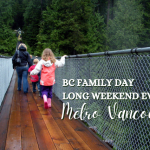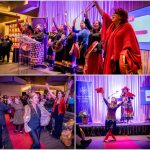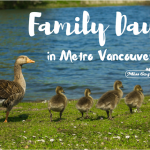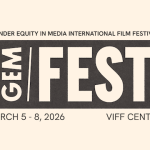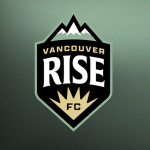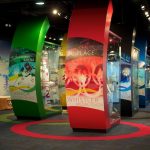Indigenous-Led 2030 Olympics Bid Concept Reveal
Last week at a ceremony at the Squamish Lil’wat Cultural Centre in Whistler, the Lil̓wat7úl (Líl̓wat), xʷməθkʷəy̓əm (Musqueam), Sḵwx̱wú7mesh (Squamish) and səlilwətaɬ (Tsleil-Waututh) First Nations, together with partners at the City of Vancouver, Resort Municipality of Whistler, Canadian Olympic Committee (COC) and Canadian Paralympic Committee (CPC), officially revealed a concept for hosting a future 2030 Olympics and Paralympics in British Columbia.

Indigenous-Led 2030 Olympics Bid Concept Reveal
“As we navigated the feasibility phase, our Nations worked closely with the Canadian Olympic and Paralympic Committees, and our municipal partners, to not only determine if it is possible to host, but to truly explore what it would mean to host an Indigenous-led Olympic and Paralympic Games,” said yəχʷyaχʷələq, Chief Wayne Sparrow. “With the release of the Games concept, we can finally begin to share that we are ready to welcome the world back to our territory and create new paths towards reconciliation through sport.”
The concept reveal marks the end of the feasibility phase, one step in an Indigenous-led and privately funded process that can set a global model for partnerships between First Nations, governments, and the world of sport in the exploration of hosting transformative major events.
“This is an important step in our consideration of a potential Indigenous-led bid for the Olympic and Paralympic Games,” said Squamish Nation Spokesperson Wilson Williams. “Now it is time to speak to our communities, and indeed the Canadian public, as we seek feedback on the more detailed proposal. In keeping with the traditions of our Nations, the communities will have an opportunity to add their voice to the discussion and help the Leadership Assembly as we move closer to a decision.”
Proposed 2030 Winter Olympics Venues
The hosting concept represents a proposed Winter Games that is sustainable, values-led and community-focused. The plan almost exclusively reuses and revamps existing venues – such as UBC’s Doug Mitchell Thunderbird Sports Centre (ice hockey and Para ice hockey), the Richmond Olympic Oval (speed skating), and the Whistler Sliding Centre (bobsleigh, skeleton, luge) – ensuring that these important pieces of Canadian sport infrastructure are maintained and viable for generations to come. The concept also proposes a new partnership with Sun Peaks Ski Resort near Kamloops, which would host snowboard and freestyle skiing events on the traditional unceded territories of the Adams Lake, Little Shuswap Lake and Neskonlith Indian Bands.
“[This] is a very important day, as we enter into the next phase of this Olympic journey,” said Chief Jen Thomas, Tsleil-Waututh Nation. “Tsleil-Waututh is honoured to stand with our families from the Four Host Nations and our partners as we continue the good work to move towards the first ever Indigenous-led Olympic and Paralympic Games.”
In addition, the Games are designed to be climate-positive – the first Games mandated by the International Olympic Committee to have a net negative carbon footprint. This means sustainability is at the core of the concept, from venue reuse and construction to athlete transportation, with the aim of having a lasting impact on climate policy and action in Canada long beyond the Games.
The Indigenous-led process of exploring opportunities to bring the Games back to British Columbia began with a historic signing of an MOU between the Lil̓wat7úl (Líl̓wat), xʷməθkʷəy̓əm (Musqueam), Sḵwx̱wú7mesh (Squamish) and səlilwətaɬ (Tsleil-Waututh) First Nations, the City of Vancouver and the Resort Municipality of Whistler in December. The Four Host First Nations along with the two municipalities invited the COC and CPC into the process through a collaboration agreement in January.
As part of the collaboration agreement, all parties committed to participating in a feasibility assessment and the initial concept development to bring the Games back to Canada’s West Coast in 2030, while respecting the Truth and Reconciliation Call to Action 91, the Province of British Columbia’s legislation of the Declaration on the Rights of Indigenous Peoples Act (DRIPA), and the federal government’s United Nations Declaration on the Rights of Indigenous Peoples Act (UNDRIP).
With an initial hosting concept developed, the project will advance into a broad and ongoing phase of community engagement and discussion with the public – a process that started within the communities of the Four Host Nations. The team is now actively seeking to discuss the project in greater detail with the public and other key stakeholders at the local, regional, and national levels. In the coming weeks, more details will be announced, including financial estimates.
This engagement will help inform the leadership assembly partners. Should the project proceed, the COC, on behalf of the partners, would continue dialogue with the IOC within the international bidding process.




